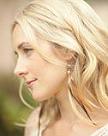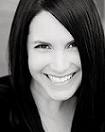How do you balance creativity and believability?
"I make up some pretty crazy, outsized stuff, like girls who turn into bumblebees and highway interchanges that erupt and spew stars. And the way that balances is that any element of the story that could actually happen in this world has to be as rigorous as possible. That means my people have to be real people; their emotional reactions and intellectual logic have to be the way people really would act, not how someone thinks they might; the way you get electricity down to your underground hideout and the details of someone's tardive dyskinesia symptoms can't be handwaved or glossed over, they have to be researched and planned.
The real bits just make the creative bits look more creative; the creative bits make the real ones feel solid and secure. And…somehow it works." - Leah Bobet, author of Above.
The real bits just make the creative bits look more creative; the creative bits make the real ones feel solid and secure. And…somehow it works." - Leah Bobet, author of Above.
"I have my mom read it. If she believes it, I’m good to go." - Aaron Karo, author of Lexapros & Cons.
"I don’t see creativity and believability as being at odds with each other. The whole process of writing fiction entails creating, and if you really sit with your characters and stew in their lives until everything about them is real to you, and you convey that well enough, believability should follow. At least in theory.'" - Ann Stampler, author of Where It Began.

"For me these are the same thing, as there’s nothing more creative than making something up out of nothing and convincing people that it’s true. Especially since on the page, the “realistic” places and people that lack a creative twist can often seem generic and obviously untrue. Storytelling is, at its heart, lying—and you’ve got to be pretty creative if you’re going to tell a convincing lie." - Robin Wasserman, author of The Book of Blood and Shadow.
"You know that saying that truth is stranger than fiction? That's kind of my guideline when writing books. In other words, I don't worry too much about believability. It's a work of fiction, the reader knows the author is making things up, as long as it isn't completely preposterous, it should fly." - Alissa Grosso, author of Ferocity Summer.
"I don't think the two have to be in conflict. Suspend the reader's disbelief. Expand your own imagination. Write with authority. Magical realism. There's a way to do just about anything." - Kendare Blake, author of Girl of Nightmares.
"Even though I write supernatural stories, I try to ground them in some kind of science, like with Mia’s lightning scars/Lichtenberg figures. Fact: People who’ve been struck by lightning sometimes get red marks on their skin that look like lightning, but they quickly fade. Fiction: Mia’s Lichtenberg figures never go away, just keep growing every time she’s struck." - Jennifer Bosworth, author of Struck.
"I don’t worry about such a balance. Things have to be refreshing and believable in the context of the story. If I am immersed in the world I’m writing, it takes care of itself. The magic is plausible." - Meg Medina, author of The Girl Who Could Silence the Wind.
"Carefully. I haven’t written straight contemporary, but my books aren’t paranormal either. I like to call my blurred genre 'Strange in Normalville,' and writing there requires me to walk that fine line on a regular basis. I guess my litmus test for a creative idea is whether or not I can see it as one of those bits of weird news on CNN…the 'most shared' type of stories that make you furrow your eyebrows at the computer screen but that actually did happen somewhere." - Cat Patrick, author of Revived.
"Ha! I have no idea. I guess I don't really pay much attention to whether or not it's believable. If I can imagine it, it can happen." - Gwen Hayes, author of Dreaming Awake.
"When writing about 'magical' things, strive for an internal logic. You can be crazy creative and spin the wildest stuff as long as it holds true to that bottom line. Be insane—but make sense." - Nina Malkin, author of Swear.



















































No comments:
Post a Comment